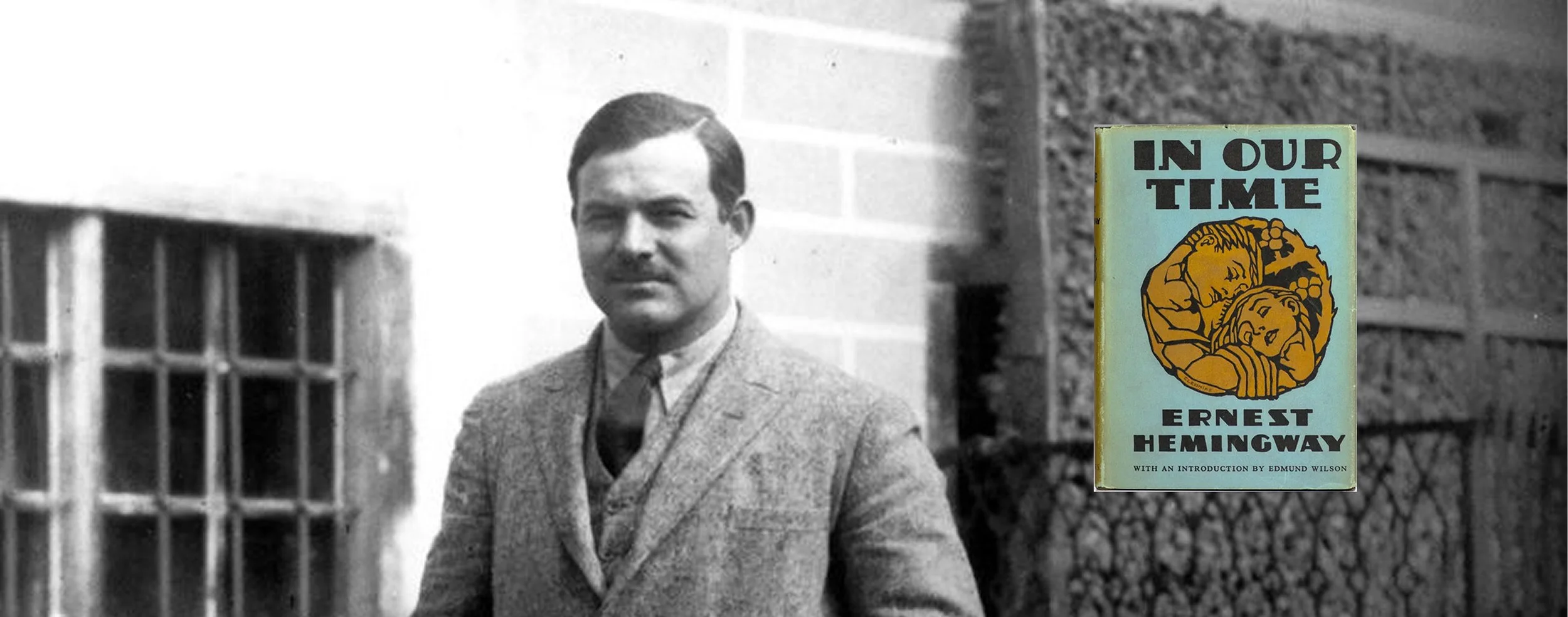In Our Time
In his early 20s, Ernest Hemingway was in transition as most of us are. At 17 years old, he had gone from high school to starting his career as a writer by being a journalist for the Kansas City Star. Then he joined the American Red Cross and served as an ambulance driver during WWI. While doing that, he was severely wounded. After the war he returned to journalism, reporting for the Toronto Star.
He worked as a reporter for about five years. He got married and had his first son. He also tried to figure out who he was as a writer of fiction. If you want a glimpse into how he figured that out, then you will enjoy In Our Time. If you enjoy short-form fiction, then you will enjoy In Our Time. If you are looking for a way to test drive Ernest Hemingway’s writing, you will enjoy In Our Time.
I like to think of this book as a literary combo platter which whets a number of different appetites. Short and sweet, yes, but poignant as well. Even as a very young man, Ernest was keenly aware of how much slips away from us as a matter of course and how quickly it can happen.
In form and structure this is not an easy book to describe: the most frequent description is “short stories and vignettes” because that cleverly sweeps the interesting-but-partial writing under the ‘vignette’ rug. For the die-hard Hemingway fan, these vignettes are a fascinating example of his “iceberg theory,” his personal version of “show, don’t tell” which left the reader to imagine the large amount of the story that remains unsaid, extrapolating from the relatively small amount that shows above the surface.
In some of the stories, the writer is saying goodbye to his childhood with some beautiful love letters in the form of short stories featuring his avatar, Nick Adams.
In some of the stories and vignettes, the writer is struggling with how to write about his experiences of war and how much to write about his experience of war.
While not at the very height of his powers, very young Ernest Hemingway was still a damn fine writer and a master of the short-form. It is easy to see why, after this, he felt ready to spread his wings as a novelist.
All in all, In Our Time is well worth reading for a number of audiences.
-----------------------
Brendan Hemingway
Executive Vice President & Secretary
Hemingway, LTD

